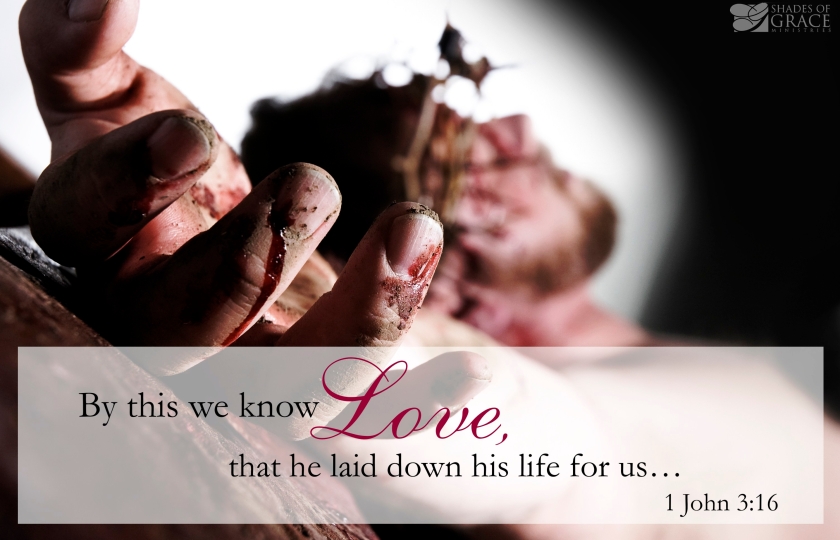WORD Becoming, Spiritual Reflections By Fr Roderick Salazar SVD
He has always wanted us to be with Him.
Why else would He create us
– out of nothing – we remember,
and put us in this world, in our place at our time?
Biologically, of course, we came to be
through our parents and ancestors,
but purposely, in our time, to where we now are,
because God willed it so: to come from His heart
into our world, and, after our life on earth,
to come back to Him.
It was not at the time of dinosaurs that we came.
Not when there were no farms, no comfortable homes,
Not when there was so much killing in wars
and deaths because of various diseases.
Not when there were no cars and planes and phones.
But now, in the 1940s 50s 60s and 70s, 80s
and in a new century, new millennium.
Now with all the conveniences.
There may be a great shutdown now.
So much has changed in the world in not even a year.
Still, He reigns. There must be a reason.
why you and I still live. With difficulties, sometimes, yes.
Not always with ease. But we live. Thanks be to God.
And the reality remains. We are loved.
The challenge is that we receive that love with gratitude
and love Him in return and in whoever He chooses to be.
He misses us when we do not respond. He looks for us.
The very first question we find in the Holy Bible is:
“WHERE ARE YOU?” which he asks of Adam and Eve.
There is a very loving scene in Genesis about this.
Having created the heavens and the earth,
the sun and the moon and the stars, and all the
living plants and animals, God created the human.
From clay, from the dust of the earth, and breathed
into him a soul. Woman was given to the Man as companion.
He must have regularly visited them in the Garden of Eden,
in the cool of the day, the Book says, before sunset.
Bu on the day that Adam and Eve disobeyed His command
not to eat of the fruit of the Tree of Knowledge of Good and Evil,
they realized that they had done wronged and hid themselves
so that when God came to visit, not finding them in the
usual place, God shouted ,”WHERE ARE YOU?”
A concerned question. A loving query.
For He wanted to be with our first parents,
wanted them to be with Him.
As with the first humans, so with us all till the end of time:
We are each and all meant to be with God.
But we hide, we run away, we get lost.
And always, always He looks for us.
Down the ages He sent holy men, prophets,
judges, kings, priests to remind people of Him.
Abraham, Isaac, Jacob, Moses, Elijah, Isaiah,
Jeremiah, David, Solomon, Ruth Esther, Judith.
At certain times they did, even if they, too, failed.
But all the time, the message was “I am with you.”
I am here. Listen to Me. Follow me. You are meant for Me.
Till in the fullness of time, through Mary, His own Son,
the Divine Word, He sent to become human like us
If people had been shouting in their own way to God,
“Where are you?” the Incarnation was God’s reply:
“Here I am. Emmanuel. God is with us.” Jesus.
Indeed, we are reminded,
“He comes to us where we live, He loves us as we are.
Our hearts are His birthplace. Our lives are His home,”
And the message is constant. Be not afraid. I am here.
Always. Always. The assurance. You are not alone.
I am with you.
There is also an intimate scene in the Gospel of John (21,15-19)
which illustrates God’s committed coming to where we are.
The context is this: Jesus had suffered and died.
He was buried. He rose again. Not all believed at once.
Not even his chosen twelve. But He rose from the dead.
As he had foretold.
Up to that point of the crucifixion and His dying,
a lot of things had happened.
Judas betrayed Him. All His disciples deserted Him.
Peter, His chosen chief, denied Him. Three times.
When He breathed His last only John was there.
with Mary, the Mother of Jesus, and other Marys.
The rest, they were all gone. Fled. In hiding.
But the love of God conquers all. He died and saved us.
When He rose again, one of the things He told the women
to whom He first appeared, Resurrected, was for His disciples
to go to Galilee where He would meet them.
To understand this instruction, it is good to know that
during the time of Jesus, there were three regions or provinces
in the land of Israel: Galilee in the north, Judea in the south,
and Samaria in the middle. Galilee was where one found
Nazareth and Cana and Capernaum. Jesus grew up there.
Samaria was the middle region, and the people there were
the Samaritans who liked neither Galileans and Judeans.
Judea was the southern province, where Jerusalem was.
And Calvary where Jesus died.
It was not easy traveling up and down the country,
There were no cars or trains. Only animals.
One traveled on foot, sometimes riding on animals.
But up and down that region Jesus walked.
Why did Jesus want His disciples to go to Galilee in the north
when Jesus died in Calvary, in Judea, in the south?
Perhaps it was to renew the hearts of His disciples.
They were His chosen ones, but they had deserted him.
They were sorrowful. How were they to be His witnesses?
How could they be that when their hearts were so down?
Go to Galilee. The scene of their first love.
There where He first called them, there perhaps their
Love would be revived. There they may be made new again.
So they went those many miles to Galilee.
But Jesus was not there. Not immediately.
So Peter, the fisherman, said, “Oh well, I’ll go fishing,
to my first occupation before He called us
And others went with him. The whole night they fished
dropping their nets here, there, everywhere. Nothing.
At dawn, exhausted and frustrated, they are about to turn in
when one hundred yards away, on the shore, a figure shouts,
“Children, have you caught any fish?” “No,” they shouted back.
“And the man exclaims, “Drop your nets on the right side
of the boat. You’ll catch fish.” They do, and ohh fish galore
their nets can hardly contain them.”
And John, he who had put his head on the chest of Jesus at
the Last Supper felt something stir in his heart, and says,
“It is the Lord”. Huh? and Peter jumps into the water
and swims to shore. Here now is the scene most tender.
We all know of the Last Supper. This is the First Breakfast.
And Jesus is the cook, the host. His resurrected face
is no longer the same. But the disciples accept He is Jesus.
As they eat breakfast together on that Galilean shore,
Jesus turns to Peter and asks Him three times if Peter loved Him.
I used to think that the question asked repeatedly was so Peter
would have a chance to make up for his thrice-denial of his Master.
Maybe. But we do not really know.
Later, I supposed that the question may have been asked
with different words being emphasized:
First, Do YOU (in contrast to the others) love Me?”.
Then, “Do you LOVE (not just LIKE) Me?”
And lastly, “Do you love ME (and not somebody else) ?”
Maybe, this, too, was possible.
Then I came across an author who said that if one checked
this Gospel text in its original Greek, one would find out
that Jesus used TWO different words for love, moving
from one to the other in accordance with how Peter answered.
While the English language has only the word LOVE used
in varying contexts: I love my dog. I love fish. I love you.
Greek uses different words depending on the intention.
AGAPEIN/AGAPE is used for the Love of God.
EROS is for romantic love.
PHILEIN/PHILO is used for love between friend and friend.
The first two times Jesus asked Peter, Jesus used AGAPE.
Both times, Peter answered using PHILO/PHILEIN.
The third time, Jesus went to the level of Peter.
Jesus: Do you love (philein) Me?
Peter as in the first couple of times: I love (philein) You.
For me, this is a very subtle lesson in God’s way of love.
He comes to us where we live, loves us as we are.
He wants us to come to the second floor.
But we are still on the first floor.
As in the Incarnation, He comes to us where we are
and helps us up to where He is. Where we are meant to be.
That was how He dealt with Peter.
This is how He deals with us. Even now.
Let us be grateful.
Let us take His hand.
***

